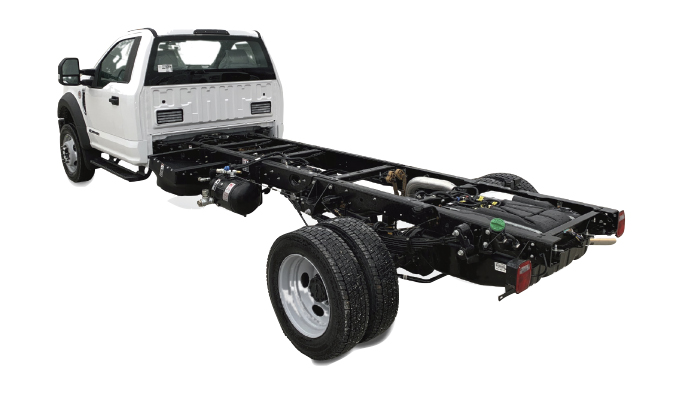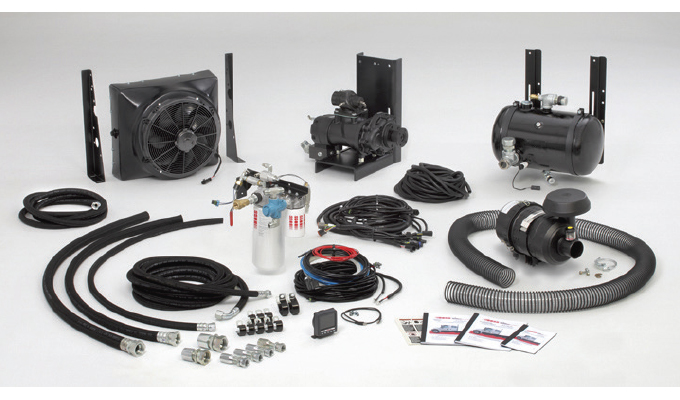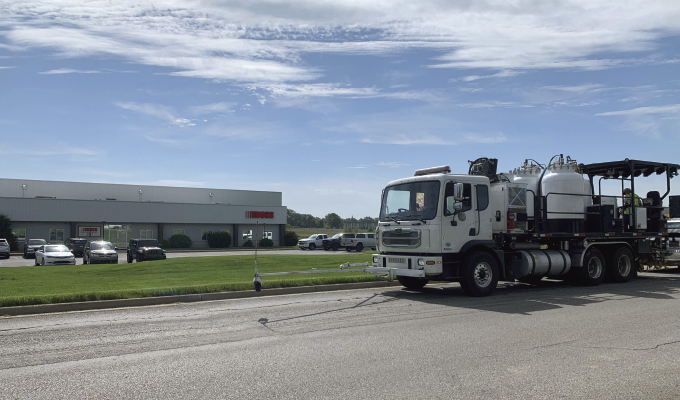The culture of buying the right air compressor for the job is based on the legacy of the 185 CFM towable compressors. The 185 CFM towable market found roots in the Michigan City, Indiana area. Those roots run deep at BOSS Industries, and it is that legacy that continues to drive innovation in the mobile air compressor market.
But one of the industry’s biggest challenges when choosing the right compressor for the job has been the consumers’ history and comfort level with the 185 towable compressors. Because of this, when spec’ing out an air compressor for the mobile truck market, a typical response is: “We need 185 CFM.” This is based on an “it worked best last time, so it’s what we need now” attitude. However, this could not be further from the truth.
CHANGING A MINDSET
In its time, the 185 towable was a much-needed solution for operating air tools on the jobsite, and it still has its place in some markets. However, choosing the right air compressor for the job at hand is even more critical as energy consumption and job efficiency become more important factors as we move forward. PTO drive options, better engines, and more efficient tools produce the exact same equipment that suits your needs at the lowest cost of ownership.
In today’s climate of raw material shortage, vendor issues, and increasing demand for product, now is the time to change the way we spec compressors. Why spend the financial resources on 185 CFM of air when the job only calls for 100 CFM? A rotary screw air compressor, by design, needs to be operated at its rated capacity to experience its optimum benefits and performance. If not, service and maintenance costs could increase. Most applications seen today could benefit from less volume of air, which, in turn, would save upfront cost, lower engine run times, lower service costs, less wear on the tools, and more.
Many times, choosing the right method of air compression is just as important as choosing the capacity (CFM) and pressures (PSI). Think about it like this: Does the job dictate continuous air, e.g., jack hammers, piercing tools, or running any air tool for longer than 20 minutes at a time? Or does the job call for intermittent air, e.g., impact wrenches, drills, or any air tool with short duration usage, such as removing lug nuts on a wheel? If the job requires continuous air, then a Rotary Screw type compressor is the right choice. If the job requires intermittent air, then a Piston type compressor better fits the bill.

COMPRESSOR DIFFERENCES
A rotary screw compressor is air-on-demand, meaning you have immediate, continuous air that can run for hours or even days. The bonus is the fact that there is no air reservoir (tank) needed. This design uses two rotating lobes that are in an oil-flooded system. The oil serves three primary functions: 1) It seals the tolerances between the lobes (screws) to create compression, 2) it helps lubricate the bearings on the rotors and gear boxes, and lastly, 3) it transfers the heat from compression to the cooler.
A piston type compressor (reciprocating compressor) uses the piston and rings to build pressure and fills an air reservoir (tank). This requires a short pressure build time to fill the appropriate size air reservoir but is ideal for on/off, short air usage applications.
CHOOSING A COMPRESSOR
Now that compressor differences have been established, it’s time to decide what CFM and PSI to choose by considering the tools used on the job. BOSS Industries recommends sizing the compressor to the rated specifications of the tools used to ensure the life span and investment in the air tools. Choosing the right type and size of an air compressor is just as important as choosing the right tool for the job.
BOSS Industries’ underdeck rotary screw air compressors and generator products are intelligently designed systems. BOSSAIR underdeck products produce air from 30 CFM to 900 CFM and power generating options up to 62kW. BOSS underdeck systems feature plug-and-play, time-saving wiring systems, no-drill mounting platforms, spin-on filters, and the industry leading B-CAN digital interface. Partnered with the BOSS lifetime warranty program, the BOSSAIR underdeck compressor and power systems is a top choice for the work truck industry.
BOSS also offers a wide range of abovedeck compressor systems, both hydraulic driven and engine driven. Additionally, the trend is now moving into a more “multi-functional package” for a total and complete service or work vehicle. Air, AC power, welding, hydraulics, battery charging, and jump starting capabilities round out a more complete package rather than just air.
To help you, the BOSS sales team is dedicated to help customers make intelligent choices when choosing the right air compressor—and not just for the bottom line. To help even more, BOSS offers an industry-first Air Consumption Guide on its website—a great start when spec’ing out a new work or service truck.
Together, let’s work smarter, not harder.

ABOUT THE AUTHOR
Chuck Hamilton is the director of marketing at BOSS Air. Find out more, visit www.bossair.com.




